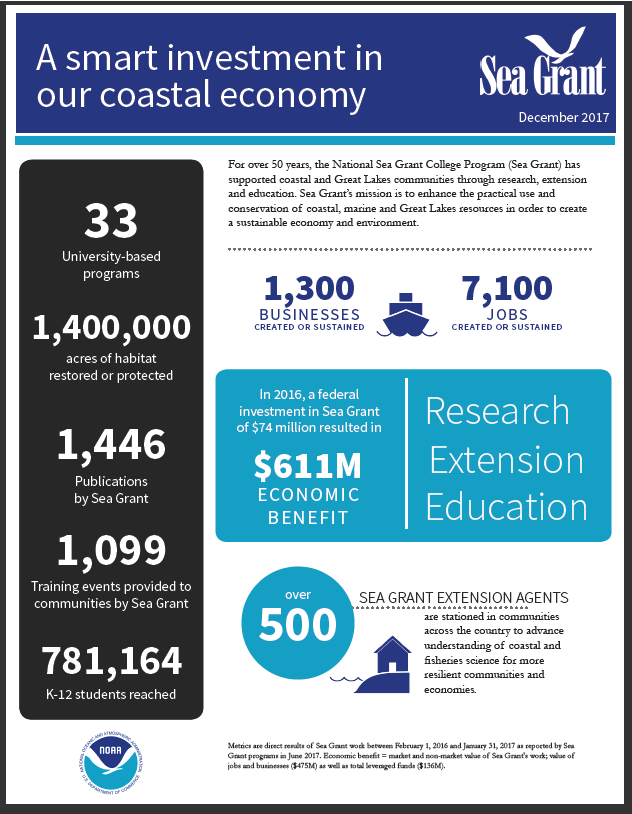
File Size: 520.20 KB
Year: 2017
Handout overview of the impact of Sea Grant programs

Handout overview of the impact of Sea Grant programs
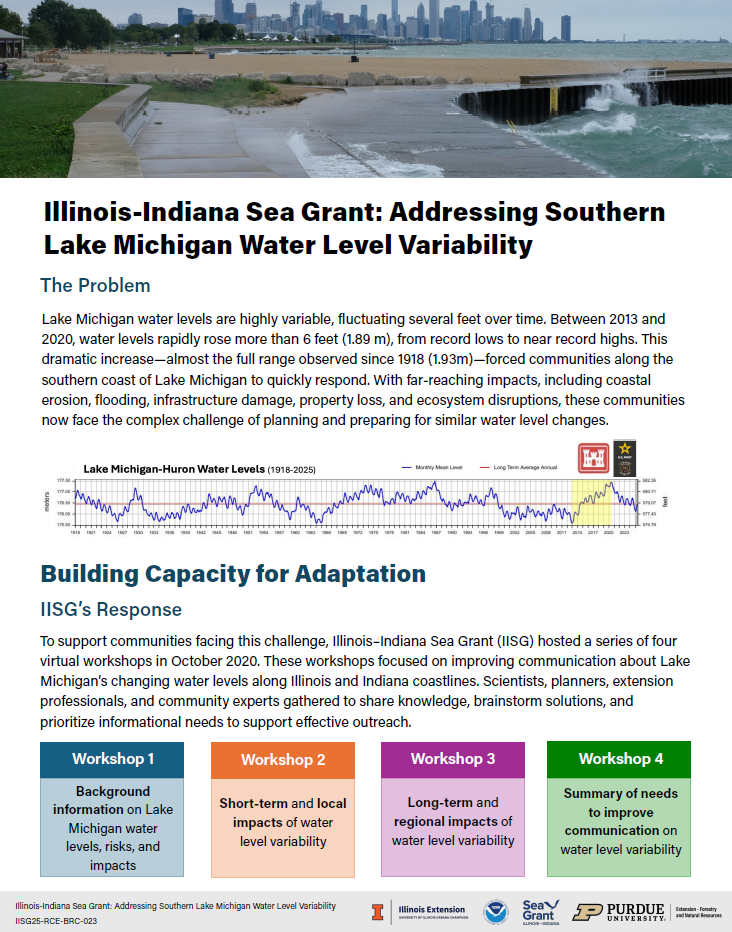
Water level variability in Lake Michigan, such as the rapid 6 ft rise between record lows in 2013 to near highs in 2020, had substantial impacts along the southern Lake Michigan coast, forcing communities to quickly respond and plan for future changes. To help address this challenge, Illinois-Indiana Sea Grant (IISG) hosted a series of four virtual workshops in October 2020, focused on improving communication about water level variability along the Lake Michigan coast of Illinois and Indiana. This factsheet summarizes the need, goals, and outcomes of the workshop series, and highlights key resources developed by IISG to address prioritized datasets and outreach products identified in the workshops.
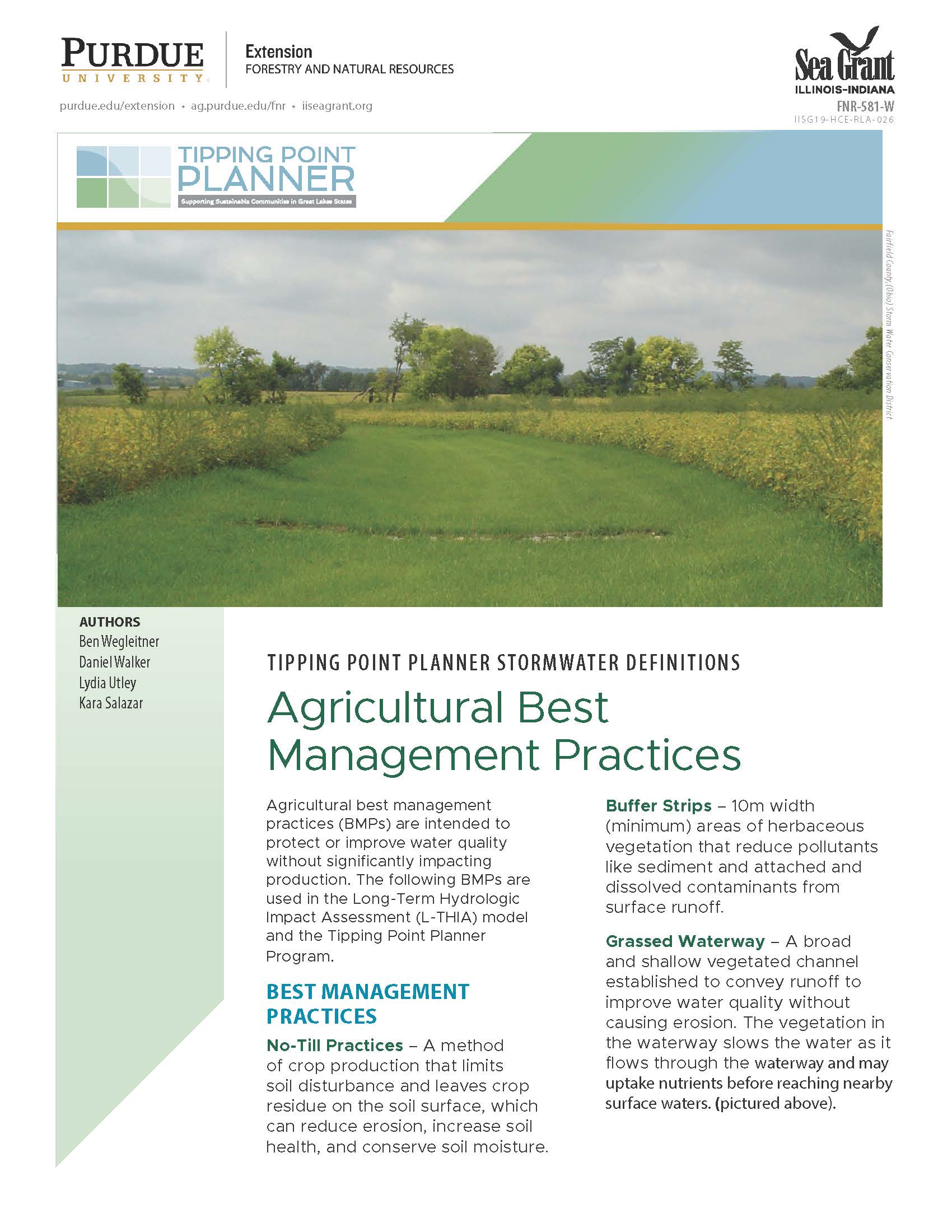
This publication discusses the benefits of several agricultural best management practices for protecting or improving water quality. These BMPs are used in the Long-Term Hydrologic Impact Assessment model in the Tipping Point Planner decision support system.
It is available through the Purdue Extension Education Store at https://edustore.purdue.edu/FNR-581-W.html.
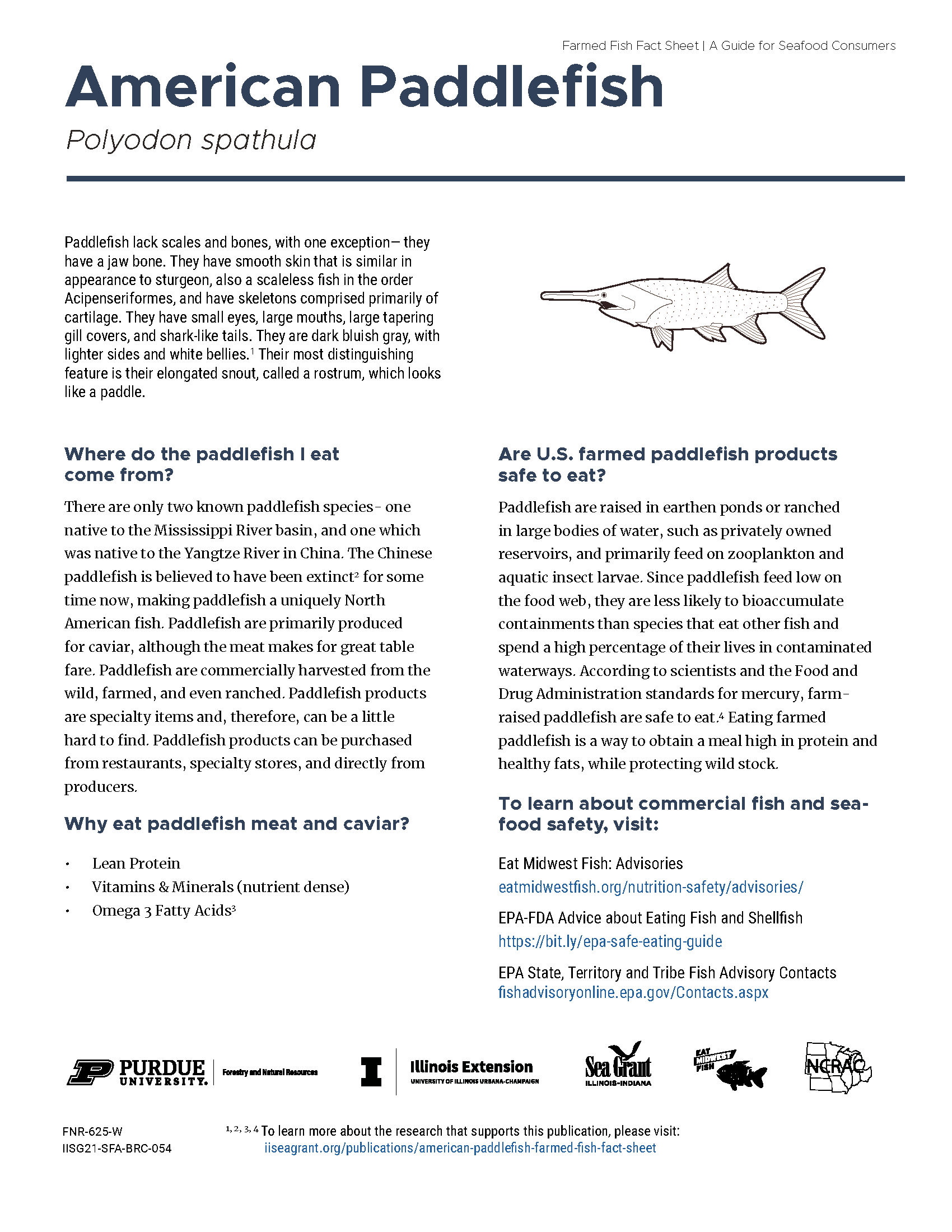
This is the sixth in a series of consumer guides that describe fish and shellfish farmed in the Midwest region of the United States. (See Walleye Farmed Fish Fact Sheet, Yellow Perch Farmed Fish Fact Sheet, Tilapia Farmed Fish Fact Sheet, Rainbow Trout Farmed Fish Fact Sheet, and Pacific White Shrimp Farmed Fish Fact Sheet). The fact sheet also includes culinary characteristics, cooking tips and a recipe for Zesty Grilled Paddlefish.
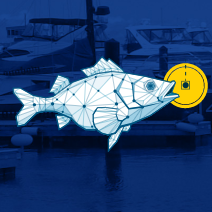
Angler Archive provides easy access to long-term recreational fishing data collected in southern Lake Michigan. These data have been provided by the Illinois Natural History Survey (INHS) and Indiana Department of Natural Resources (IDNR). The Angler Archive allows you to explore trends in three recreational fisheries from the mid 1980s, filter and compare data by factors such as month, site, and target species, visualize the data in a number of different ways, and export charts and data table.
For more detailed information, visit Angler Archive
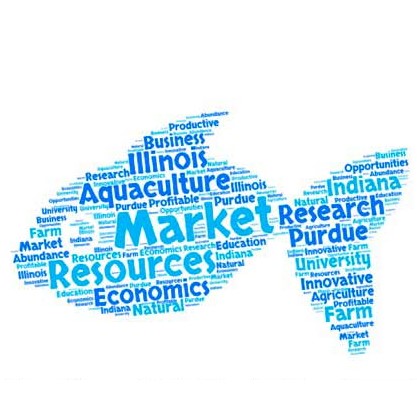
Whether you are an aquaculture producer or you are thinking of starting an aquaculture business, this site provides you the best information to ensure a productive, innovative, and profitable aquaculture business.
For more detailed information, visit Aquaculture Economics and Marketing Resources
Note: Some older Illinois-Indiana Sea Grant publications have not yet been restructured into ADA compliant formats. We are actively working on this. If you are having difficulty accessing a particular item in one of our databases, please contact iisg@purdue.edu with the name of the item and its URL for further assistance.